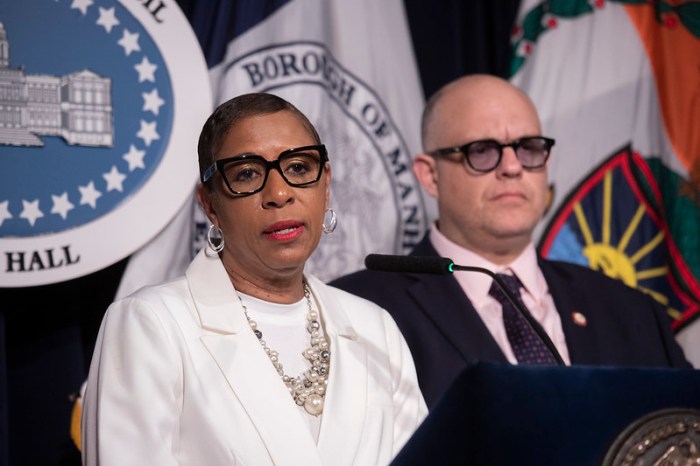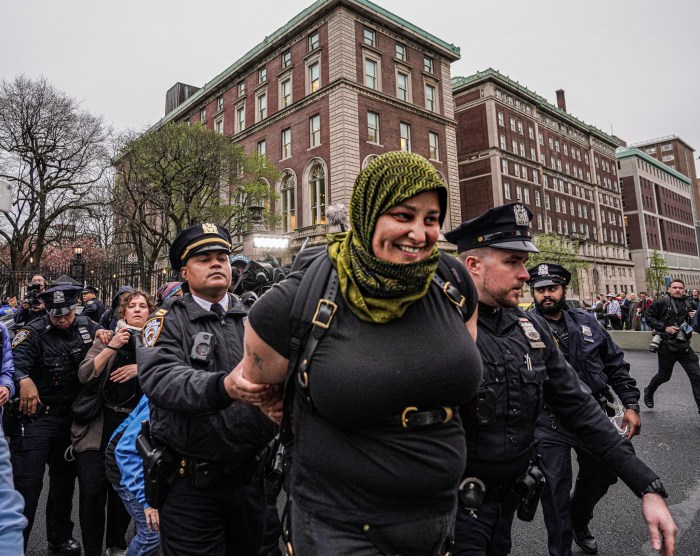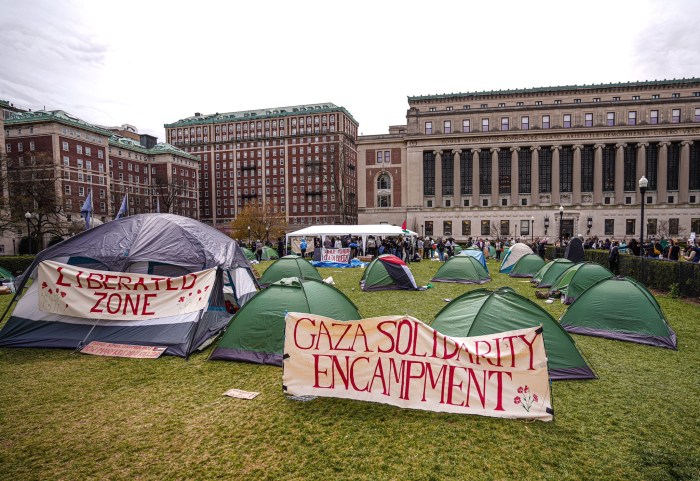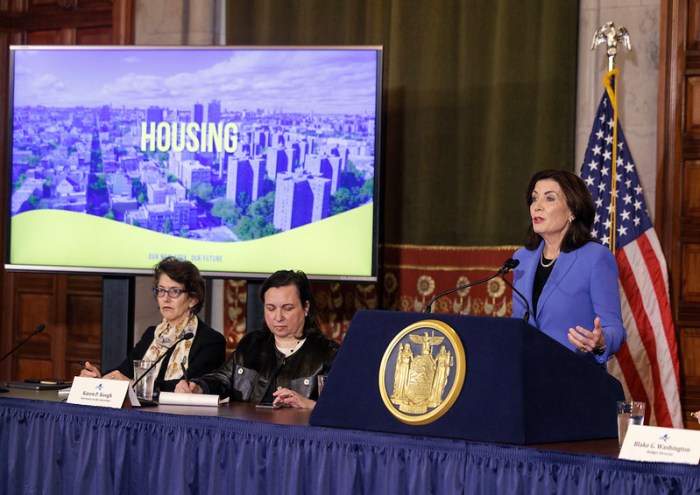
A 3-year-old from Harlem held up an “Onward” sign, a 12-year-old from Yorkville aspired to be stronger, and hundreds of other children yelled as loudly as they could for women empowerment at the Women’s March on New York City on Saturday.
Be it parents sporting kids on their shoulders, or desperately trying to keep track of them in the throng of protesters, they were united in their decisions to bring their children to the march — teaching them to stand up for what they believe in.
“It’s time for young girls from an early age to stand up and have their voices heard,” said Mina Mckiernan, who is the mother of two daughters.
At the Women’s March for the second time, Mckiernan’s 12-year-old, Leila, wanted to let the world know that she could fight back even though she is young.
“It’s awesome to see how many people believe in the causes I care about,” the pussyhat-clad girl said. “LGBTQ rights, women’s rights, I want to stand up with these issues.”
Mothers throughout the march lamented the opportunities they never had, and were determined to give them to their daughters.
“When I was young, we weren’t encouraged to speak up,” Kathy Yellen, 48, said. “Now, our daughters will not be afraid, they will speak up, they will be empowered and that won’t end. We won’t go backwards.”
While the empowerment of young girls was the foremost factor in parents’ decisions to take their daughters to the march, the education and presence of young boys was also greatly felt.
Jade Haydock, 37, talked to her three sons about issues concerning women before the march to encourage them to participate.
“I feel a huge responsibility raising white men in America. I want to teach them that women have authority and power,” the Harlem resident said. “This march has a women’s voice and it’s such a huge thing to expose them to it.”
Carrying “Onward” and “Paint it Blue” signs, Haydock’s 3, 6, and 8-year-old sons exemplified kids who had been taught to raise their voices and display their (or their parents’) opinions throughout the march.
By 4 p.m., many kids had grown tired and taken refuge in their strollers. But their curious heads poking out over the crowd had made their presence indubitably known at the second Women’s March.

















